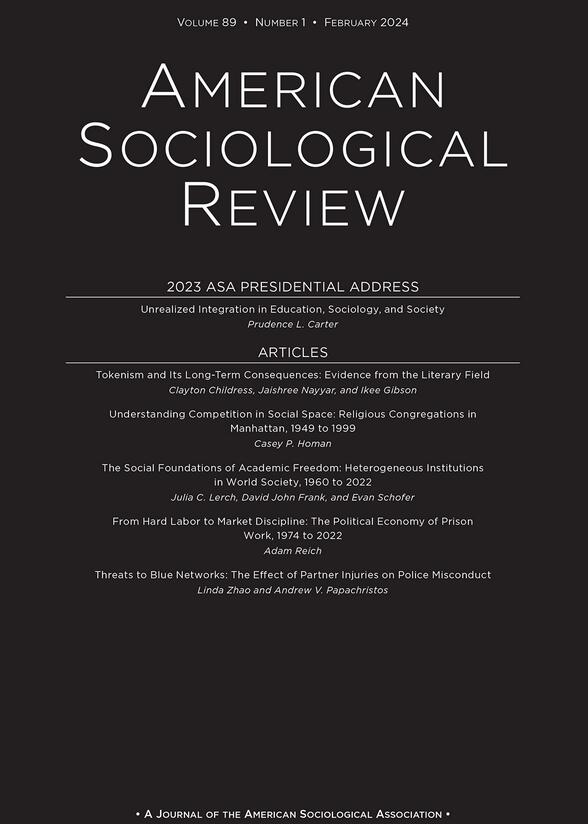专业知识市场中的性别问题
IF 6.2
1区 社会学
Q1 SOCIOLOGY
引用次数: 2
摘要
职业生涯的分层在一定程度上源于客户-专家二人组中的人际动态。为了减少对专家素质判断的不确定性,客户可以依靠专家的描述性特征和成对的关系因素来评估他们收到的建议。专家性别和客户-专家性别一致性这两个特征可能会导致客户对专家建议的信任度存在差异。为了探讨这些问题,我们调查了医学中患者提出的第二意见(SO)的发生率。在对马萨诸塞州数百万医疗索赔的检查中,我们发现,如果男性患者咨询的第一位专家是女性,那么男性患者比女性患者更有可能获得SO。此外,当患者咨询的第一位专家是性别不一致的,并且患者寻求SO时,男性患者在SO就诊中更可能转向同一性别的专家。由于对第一位就诊专家的建议缺乏信心的患者很少回到这位专家那里接受医疗服务,因此女性专家的账单较低。对随访医疗支出的分析表明,质疑医学专家建议的性别模式有可能大大加剧医学领域的性别薪酬差距。本文章由计算机程序翻译,如有差异,请以英文原文为准。
Gender in the Markets for Expertise
Stratification in professional careers arises in part from interpersonal dynamics in client-expert dyads. To reduce perceived uncertainty in judgments of the quality of experts, clients may rely on ascriptive characteristics of experts and on pairwise, relational factors to assess the advice they receive. Two such characteristics, expert gender and client-expert gender concordance, may lead to differences in clients’ trust in expert advice. To explore these issues, we investigate the incidence of patient-initiated second opinions (SOs) in medicine. In an examination of millions of medical claims in Massachusetts, we find that male patients are much more likely than female patients to obtain an SO if the first specialist they consult is female. Moreover, when the first specialist a patient consults is gender non-concordant and the patient seeks an SO, male patients are substantially more likely to switch to a same-gender specialist in the SO visit. Because patients who lack confidence in the advice of the first-seen specialist infrequently return to this specialist for medical services, female specialists generate lower billings. Analyses of medical spending in follow-up visits suggest that gendered patterns in questioning the advice of medical experts have the potential to contribute substantially to the gender pay gap in medicine.
求助全文
通过发布文献求助,成功后即可免费获取论文全文。
去求助
来源期刊

American Sociological Review
SOCIOLOGY-
CiteScore
13.30
自引率
3.30%
发文量
35
期刊介绍:
The American Sociological Association (ASA) is a non-profit membership association established in 1905. Its mission is to advance sociology as a scientific discipline and profession that serves the public good. ASA is comprised of approximately 12,000 members including faculty members, researchers, practitioners, and students in the field of sociology. Roughly 20% of the members work in government, business, or non-profit organizations.
One of ASA's primary endeavors is the publication and dissemination of important sociological research. To this end, they founded the American Sociological Review (ASR) in 1936. ASR is the flagship journal of the association and publishes original works that are of general interest and contribute to the advancement of sociology. The journal seeks to publish new theoretical developments, research results that enhance our understanding of fundamental social processes, and significant methodological innovations. ASR welcomes submissions from all areas of sociology, placing an emphasis on exceptional quality.
Aside from ASR, ASA also publishes 14 professional journals and magazines. Additionally, they organize an annual meeting that attracts over 6,000 participants. ASA's membership consists of scholars, professionals, and students dedicated to the study and application of sociology in various domains of society.
 求助内容:
求助内容: 应助结果提醒方式:
应助结果提醒方式:


